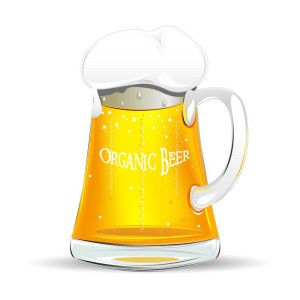Written Sincerely by Celebrating Wellbeing Director, Cathy Gehr
I like to celebrate the end of the week with a nice ice-cold beer! Ahhh! But not just any old beer. I enjoy a good organic beer, a low-carb beer, a healthy beer.
Whatever I do, wherever I am, I am always curious about the history of a country, a town, a food, a beverage. Knowing the history helps me understand and appreciate the present and enjoy the moment. Here’s an interesting tidbit about the history of beer.
Chemical tests of ancient pottery jars reveal that beer was first produced about 7,000 years ago in present-day Iran. The brewing of beer is one of the first-known biological engineering processes of fermentation.
Clay tablets that were unearthed in what used to be ancient Mesopotamia indicate that brewing was a fairly well-respected occupation and that the majority of brewers were probably women! Those women beer merchants were definitely on to a good thing! As nowadays, more than 133 billion liters of beer are sold yearly, with revenues in the billions of dollars!
How to Choose a Healthy Beer (Video)
This is a great video with tips on choosing local beers that are often fresher, organic, low-carb beers. Please note: This is a free to view video from Amazon.
The best toast to your health is to check that your beer of choice is GMO free. GMO maize is the main source of contamination in beer, through the use of imported flaked or cracked maize, corn syrup, glucose, maltodextrin and dextrin.
Heineken and Amstel Light attest to using non-GMO grains, and no artificial ingredients, stabilizers, or preservatives. German beers also appear to be reliable, safe healthy beer choices because the German culture takes pride on crafting pure products. A German law called “Reinheitsegebot” limits all German beer manufactures to a list of 5 core ingredients which are water, hops, yeast, malted barley, and wheat. Many consumers believe German beers taste cleaner and report that they don’t suffer from hangovers because of this purity regulation which was established on 23 April 1516! Wunderbar!
Unfortunately, North American beers such as Coors, Pabst Blue Ribbon, Budweiser and other beers made in the USA are notorious for containing genetically modified and genetically derived substances. GMO Mexican beers are also off limits for me, such as Corona. UK brand beer Newcastle, Australian beer Fosters and even Guinness are in the GMO beers category, according to Food Babe Vani Hari.
Breweries without concern for public health add, for example, GMO corn syrup to their brews in order to attain a “milder and lighter-bodied flavor”. With corn syrup, especially high fructose corn syrup, injected into everything from bread to yoghurt and even Guinness, it’s best to be an avid label reader not only of what you eat but also what you drink.
Craft breweries and micro breweries are a safer choice when it comes to purchasing a healthy beer, but it’s important to recognize which ones are actual microbrews. For the most part, local, independently owned-and-controlled craft breweries can be enjoyed with no worries.
When considering how to choose a healthy beer perhaps some may argue, “But organic products are more expensive. I can’t afford organic products.” If that’s what you’re thinking, pause to ponder these insightful words from a 14 year old teenager named Birke Baehr whose passion is to be a farmer. He wisely said, “You can either pay the farmer, or you can pay the hospital.”
I’ll drink to that!


Speak Your Mind